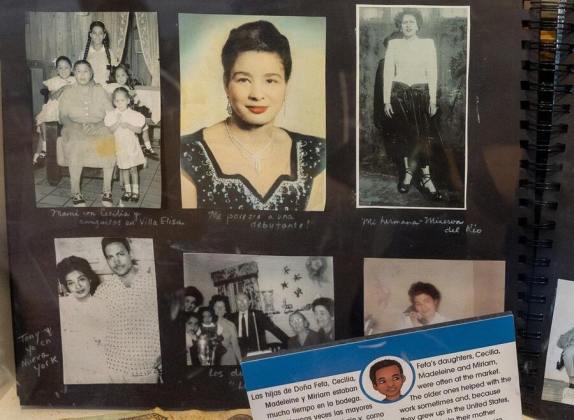Doña Fefa and her daughters Cecilia, Madeleine, and Miriam are among the inspirations for characters in “La Broa'” at Trinity Rep.
There are both artistic and logistical questions to consider when staging bilingual theatre: Should a character repeat dialogue back in English? Should the designers project supertitles? Should audiences be encouraged to lean into the feeling of not knowing what’s going on at all times, perhaps discovering something in common with characters navigating an English-driven country?
For Orlando Hernández, whose play La Broa’ (Broad Street) premieres at Trinity Repertory Company Jan. 18-Feb. 18, the last approach has resonant value. “I know so many people who did a lot of theatre, and it wasn’t until they did a bilingual play that their grandmother or their parent could be like, ‘Oh, this is what you do—this is what you’ve been up to this whole time,’” he said.
Some theatremakers project a dichotomy of language and identity onto audiences and artists, assuming that majority-white audiences won’t know Spanish and that majority-Latiné audiences all do. But Hernández is cognizant of the “different relationships” people from all backgrounds may have, both with English and Spanish, due to assimilation and the societal stigma of immigration. “I try to keep in mind that generationally and geographically, it’s a multiplicity,” he said.
La Broa’ features characters based on real people, drawn from the oral history project and book Latino History in Rhode Island: Nuestras Raíces, which features stories documented by oral historian Marta V. Martínez over the course of 35 years. Martínez is also the founder and executive director of Rhode Island Latino Arts, where Hernández first collaborated with her. To develop a stage adaptation of Martínez’s work, Hernández deferred to her knowledge of the community to immerse himself in Latiné neighborhoods of the past (Hernández’s own mother grew up in Rhode Island, but in a Jewish community separate from the then-emerging Latiné community). Whenever he and Martínez had meetings, they went to a restaurant “in one of the neighborhoods in the play that was part of our history and part of this work.”
Trinity Rep followed that spirit with walking tours of locations from the play that patrons could take advantage of. “There’s something about hearing history and stories while you walk,” Hernández said. “There’s a certain dynamic quality to it. It’s different than just sitting and receiving information.”
He said he even envisions a possible walking version of La Broa’—though perhaps not in Rhode Island in the winter. “We want to continue to transform the audience of Trinity, inviting in people who haven’t felt welcome or haven’t seen their stories represented,” he said. Sometimes you have to do the work outside to make people feel more at home inside.
Amelia Merrill (she/her) is a journalist, playwright, and dramaturg. A contributing editor at American Theatre, her work has been featured in Mic, Hey Alma, Narratively, and more. @ameliamerr_
